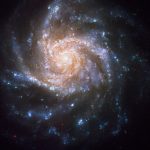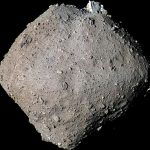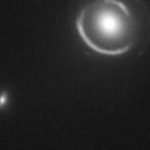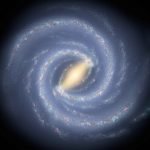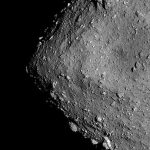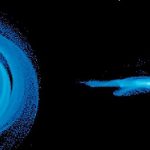A carbon-lite atmosphere could be a sign of water and life on other terrestrial...
Scientists at MIT, the University of Birmingham, and elsewhere say that astronomers’ best chance of finding liquid water, and even life on other planets,...
The early universe was surprisingly filled with spiral galaxies
If we could travel far beyond our galaxy, and look back upon the Milky Way, it would be a glorious sight.
Luminous spirals stretching from...
Organic molecules come from the universe’s cold places, shows study
Life, as we all know, is based on chemistry.
Prebiotic chemical building blocks existed on our planet for a long time before life arose.
Astrobiology and...
A new theory sheds light on dark matter puzzles
Have you ever wondered what makes up most of the universe?
A recent study brings us closer to understanding this mystery, focusing on something called...
Mars’ recent volcanic activity reveals a turbulent history
Mars, often thought of as a quiet and inactive planet, has recently shown us a more lively side.
Researchers from the University of Arizona made...
Scientists discover life’s essential ingredient in distant corners of the Milky Way
Astonishing new findings from astronomers at the University of Arizona have turned our understanding of where life's ingredients can be found in the galaxy...
MIT’s top research stories of 2023
It has been another prolific year for MIT’s research community in 2023.
As we close out the year, MIT News looks back at some of our most...
Asteroid samples reveal cosmic origins of life’s fundamental molecules
Have you ever wondered about the building blocks of life on Earth and how they might be connected to outer space?
A recent study led...
How stars forge the universe’s heaviest elements
The universe’s heaviest elements are produced spectacularly: in the hot centers of certain stars.
By studying the patterns of which elements are present in many...
Scientists unravel the mysteries of the oldest spiral galaxy
Astronomers have taken a groundbreaking look at an ancient galaxy far away, offering new insights into its formation and shedding light on the early...


